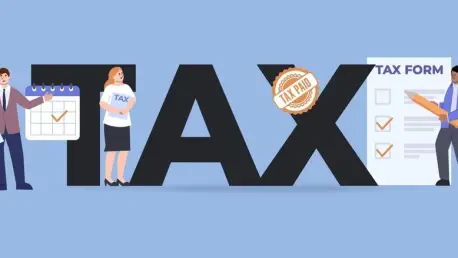Today, we’re thrilled to sit down with Donald Gainsborough, a political savant and leader in policy and legislation, who heads Government Curated. With his deep expertise in navigating the complex intersection of government policy and industry needs, Donald offers a unique perspective on the pressing challenges facing the food sector. In this conversation, we delve into the impact of taxation on food businesses, the ripple effects on consumers and supply chains, and the broader implications for innovation and economic stability. Join us as we explore how policy decisions shape the future of an industry that touches every aspect of our lives.
Can you share a bit about your work at Government Curated and what drives your passion for advocating on behalf of the food industry?
Absolutely. At Government Curated, my role is to bridge the gap between policymakers and industries like food, which are vital to our economy and daily lives. I spend my days analyzing legislation, consulting with business leaders, and crafting strategies to influence policy for the better. What drives me is seeing how much the food sector struggles under regulatory and financial pressures. It’s not just about businesses; it’s about ensuring people have access to affordable, quality food. I’ve seen firsthand how poorly designed policies can disrupt that, and I’m committed to pushing for change.
What specific tax policies have you seen recently that are putting undue pressure on food companies?
Well, we’re seeing a trend of increasing fiscal burdens through measures like heightened business rates and indirect taxes that hit operational costs. These policies often come from a place of needing to balance national budgets, but they don’t account for the razor-thin margins food businesses operate on. Unlike other sectors, food companies can’t easily absorb these costs without passing them on or cutting elsewhere. It’s a stark contrast to past approaches where there was more nuance in how essential industries were taxed.
How are these tax burdens impacting food businesses on a practical level right now?
The impact is immediate and severe. For many companies, especially smaller ones, these taxes mean an added cost that can be thousands of dollars monthly, which is devastating when profits are already slim. I’ve spoken with wholesalers and suppliers who are forced to rethink staffing or delay expansions. Smaller businesses often feel it more because they lack the financial cushion of larger firms, but even big players are tightening belts. It’s a pervasive strain across the board.
You’ve mentioned thin profit margins in the food sector. Can you unpack what that really means for these businesses?
Sure. Thin margins mean that after covering costs like labor, transport, and raw materials, food businesses often have just a small percentage left as profit—sometimes as low as 1-3%, compared to double digits in other industries like tech. When a new tax eats into that tiny slice, it’s not just a minor hit; it can mean the difference between staying open or closing shop. It forces tough choices—raise prices, cut quality, or lay off staff. None of those are good for the business or the community.
In what ways do you think these tax increases ultimately affect everyday consumers?
Consumers feel it directly in their wallets. When businesses face higher taxes, they often have no choice but to pass those costs on, so you see grocery bills and restaurant prices creeping up. For families already stretched thin by inflation, this can mean cutting back on essentials or opting for lower-quality options. It’s a domino effect—higher costs at the business level translate to less affordability at home, and that’s a real problem for food security.
How do these tax policies compound other challenges like supply chain disruptions in the food industry?
Taxes amplify every existing pressure point. Take supply chains—farmers, transporters, and wholesalers are already grappling with skyrocketing energy costs and labor shortages. When you layer on higher taxes, it squeezes every link in the chain. Transporters, for instance, might face increased fuel duties alongside business taxes, making it harder to keep goods moving affordably. It creates a vicious cycle where each challenge—taxes, energy, labor—makes the others harder to manage.
What’s the relationship between these fiscal policies and the ability of food companies to innovate?
There’s a direct link. Innovation—whether it’s adopting AI for supply chain efficiency or investing in sustainable packaging—requires capital. When taxes drain a company’s resources, those projects get shelved. I’ve seen firms postpone tech upgrades that could save costs long-term because they’re scrambling to cover immediate tax bills. Over time, this stagnation hurts competitiveness, especially in a global market where innovation is key to staying relevant.
Instead of adding more taxes, what kind of government support do you believe could help the food industry thrive?
I’d advocate for policies that fuel growth over burden. Think tax incentives for companies investing in green tech or digital tools to streamline operations. Partnerships with research institutions to develop better food production methods could also make a huge difference. Even temporary relief on business rates for smaller firms would give them breathing room to stabilize. The focus should be on enabling investment and sustainability, not just extracting revenue.
Looking ahead, what is your forecast for the future of the food industry if these tax trends continue?
If these tax trends persist without relief or reform, I’m concerned we’ll see a shrinking industry. Smaller businesses may fold under the pressure, reducing competition and diversity in the market. Consumers will face higher prices and fewer choices, while innovation stalls. On a broader scale, it could dent economic stability since food is such a cornerstone sector. I hope we’ll see a shift toward collaboration between government and industry to avoid this, but without action, the outlook is challenging.









